Mathematics
Mathematics is the study of numbers, quantities, shapes, and patterns. It is an important subject that is used in everyday life and in various fields such as science, engineering, and economics.
Key Concepts in Mathematics
- Arithmetic: This branch of mathematics deals with basic operations such as addition, subtraction, multiplication, and division. It also includes the study of numbers and number properties.
- Algebra: Algebra involves the use of symbols and letters to represent numbers and quantities. It includes solving equations, working with variables, and understanding patterns and relationships.
- Geometry: Geometry focuses on the study of shapes, sizes, and properties of space. It includes concepts such as points, lines, angles, polygons, and solid figures.
- Trigonometry: Trigonometry deals with the study of angles and the relationships between the sides and angles of triangles. It is often used in navigation, engineering, and physics.
- Calculus: Calculus is the study of change and motion. It includes concepts such as derivatives, integrals, and limits, and is used in fields such as physics, engineering, and economics.
Study Guide for Mathematics
To excel in mathematics, it is important to have a strong foundation in the basic concepts and to practice regularly. Here are some tips for studying mathematics:
- Understand the Basics: Ensure that you have a good understanding of fundamental concepts such as addition, subtraction, multiplication, division, fractions, and decimals.
- Practice Regularly: Mathematics is a subject that requires regular practice. Solve a variety of problems to strengthen your skills and understanding of different concepts.
- Use Resources: Utilize textbooks, online resources, and practice worksheets to reinforce your learning and to gain exposure to different types of problems.
- Seek Help When Needed: Don't hesitate to ask for help from teachers, tutors, or classmates when you encounter challenging concepts or problems.
- Apply Mathematics to Real Life: Look for opportunities to apply mathematical concepts to real-world situations. This can help reinforce your understanding and appreciation for the subject.
By following these study tips and staying committed to learning and practicing, you can build a strong foundation in mathematics and excel in this important subject.
[Mathematics] Related Worksheets and Study Guides:
.◂Science Worksheets and Study Guides Sixth Grade. Weather patterns
Study Guide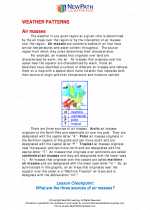 Weather patterns
Weather patterns  Worksheet/Answer key
Worksheet/Answer key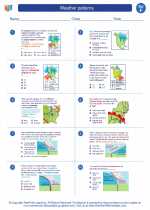 Weather patterns
Weather patterns  Worksheet/Answer key
Worksheet/Answer key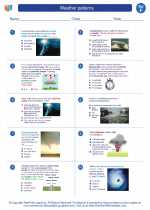 Weather patterns
Weather patterns  Worksheet/Answer key
Worksheet/Answer key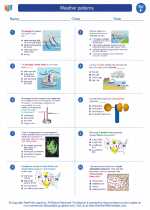 Weather patterns
Weather patterns  Vocabulary/Answer key
Vocabulary/Answer key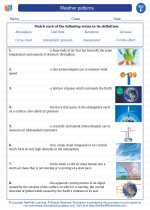 Weather patterns
Weather patterns  Vocabulary/Answer key
Vocabulary/Answer key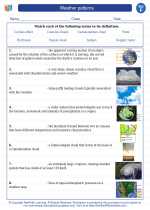 Weather patterns
Weather patterns  Vocabulary/Answer key
Vocabulary/Answer key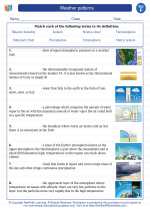 Weather patterns
Weather patterns  Vocabulary/Answer key
Vocabulary/Answer key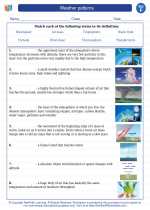 Weather patterns
Weather patterns 

 Worksheet/Answer key
Worksheet/Answer key
 Worksheet/Answer key
Worksheet/Answer key
 Worksheet/Answer key
Worksheet/Answer key
 Vocabulary/Answer key
Vocabulary/Answer key
 Vocabulary/Answer key
Vocabulary/Answer key
 Vocabulary/Answer key
Vocabulary/Answer key
 Vocabulary/Answer key
Vocabulary/Answer key

The resources above cover the following skills:
EARTH AND SPACE SCIENCE
Earth’s Systems
Integrate qualitative scientific and technical information (e.g., weather maps; diagrams; other visualizations, including radar and computer simulations) to support the claim that motions and complex interactions of air masses result in changes in weather conditions.